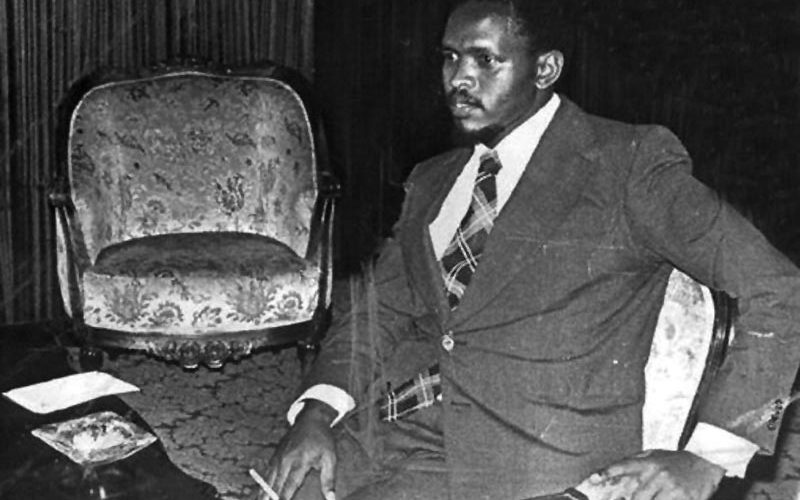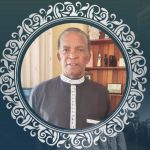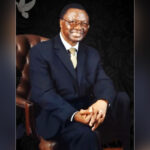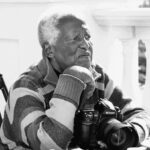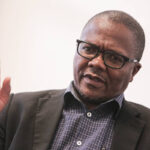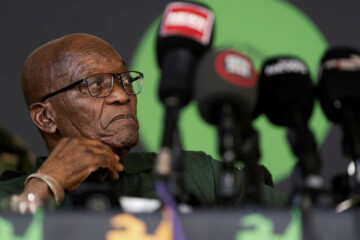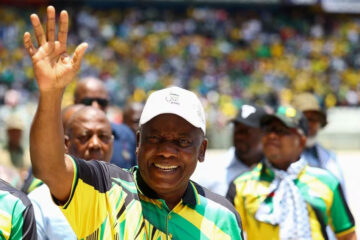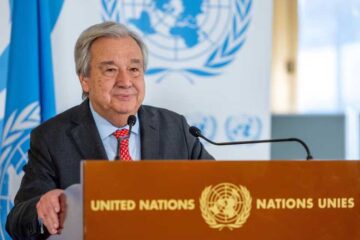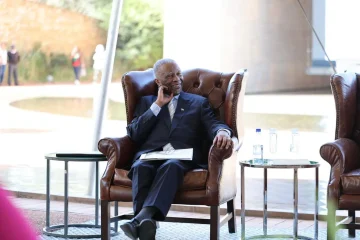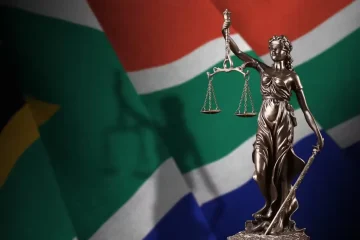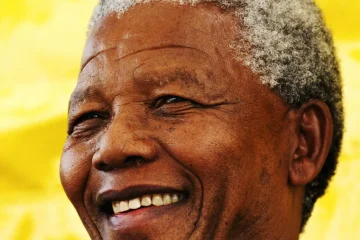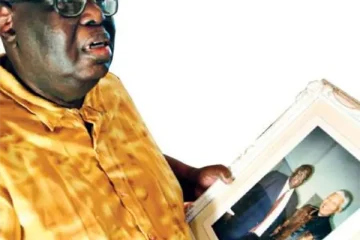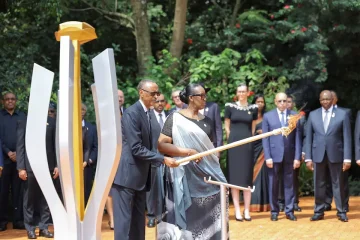MOSEBUDI MANGENA

ON September 12, 1977, that is 44 years ago, the life of a then 30 year old Steve Bantu Biko was snuffed out in the cruellest manner imaginable.
After being subjected to torture and beatings in police detention in Qheberha, he was transported naked on the bare floor of a bakkie to Kgoshi Mampuru Prison in Tshwane where he died a lonely death in a cell. He was murdered in this callous way for daring to demand freedom for the majority black population in this country.
Bantu Biko was an ordinary young man born in the Eastern Cape of working class parents, Mzingayi and his wife Alice Mamcete Biko. He went to Charles Morgan Higher Primary School and Forbes Grant High School in Ginsberg, Qonce.
He and his older brother Khaya were enrolled at the Lovedale Boarding School where Khaya was expelled for his activities in the Pan Africanist Congress. But Bantu was also expelled, simply because he was Khaya’s younger brother. Khaya, who had been trying for a long time to get his younger brother interested in politics with no success, was pleasantly surprised how the system managed to convert his younger brother so quickly into active political interest.
Bantu Biko was later admitted at St Francis College in Marianne Hill where he matriculated in 1965. He proceeded to the University of Natal to study medicine. His political consciousness was further sharpened in the crucible of university student’s politics, particularly his interactions with white liberals in the National Union of South African Students (NUSAS) and the University Christian Movement (UCM). He and other black students were riled by the hypocrisy of white liberal students who sought to speak on behalf of the oppressed black community while enjoying the life of privilege accruing out of the exploitation of black people.
He and other black students rejected the custodianship and patronage of white liberals in favour of black people becoming the champions and masters of their own destiny. Accordingly, they walked out of NUSAS and the UCM to form a blacks only South African Students’ Organisation, SASO. They launched SASO in 1968 at the then University of the North, now University of Limpopo, with Biko becoming its first President.
He discontinued his studies in medicine to concentrate his energies in efforts to free black people from settler-colonial oppression, exploitation and social degradation. He participated in, and in certain instances initiated the formation of other organisations of the Black Consciousness Movement, such as the Black People’s convention, BPC, the South African Students Movement, SASM, which catered for high school students; Black Community Programmes, BCP, which concentrated on development of the black communities; Union of Black Journalists, UBJ; National Youth Organisation, NAYO, which catered for young people out of school, and many others. All these organisations were banned by the regime on October 19, 1997, shortly after his murder. We commemorate this day with media calling it Black Wednesday, in recognition of the fact that three newspapers and their editors were also outlawed in that onslaught.
It will be remembered that the older liberation movements in this country were banned in 1960 as part of the aftermath of the Sharpeville massacre that was initiated by the PAC. Literally thousands of political activists were arrested, sent to Robben Island, some hanged and many others fled into exile.
These acts of the regime resulted in an almost decade long political lull characterised by fear in anything political in the black community. The regime was utilizing this opportunity to groom and impose Bantustans and its quislings on the black majority. The rise of the Black Consciousness Movement in the country with Bantu Biko at the helm, was a powerful rebooting of the struggle for freedom.
Indeed, iconic and impactful events, such as June 16 1976, owe their occurrence to the prevalence of the philosophy of Black Consciousness in the Black population, especially the youth.
The philosophy of Black Consciousness seeks to attack and eradicate inferiority complexes that bedevil the psyche of black people as a result of being subjected to the wholly negative propaganda by their colonisers. Blacks were told that their colour is evil, is ugly; that their features are ugly; their culture is inferior and backward; their languages unworthy and their humanity dubious and their religion nothing but a superstition. A combination of the barrel of the gun and other cohesive measures were employed to convert them to Christianity.
This bombardment, which was repeated ad infinitum over many centuries, left the majority of black people doubting their own humanity and their worthiness. Many internalized these psychologically and culturally damaging messages. It left many aspiring to whiteness. It follows that you will not fight to free yourself from those that you admire and striving to be like them; when you are trying your level best to run away from yourself.
Black Consciousness seeks to bring black people back to themselves; to restore their humanity and dignity; to see themselves as self-defined; not as appendages of some other people in neither features nor cultural attributes.
The philosophy strives to liberate black people from psychological oppression that accrues out of living in a racist society and then physical liberation that is the act of the people so freed from the shackles of the mind.
As things turned out, it is clear that we have got democracy, but achieved neither psychological liberation nor physical liberation. Our minds are still possessed by colonial mentality and the self-hate inculcated in us by our colonisers. Our mental colonization is so severe that we cannot use the levers of state power now in our hands to pull one another out of poverty and hopelessness.
If the minds of black people, especially the African component thereof, are not shackled, how come we believe we cannot teach our children? How come we are the only population group whose children are being carted away at an ungodly hour to be taught by others? Why is it that every other component of the population would move heaven and earth to teach their own children but black people do the opposite?
How come other components of our population would do all in their power to protect their schools but we would vandalize those in our neighbourhoods, burgle them and steal those things that are supposed to aid the education of our little ones? How come we steal from our children? How come we would burn the schools and libraries meant to educate our children?
If it is not mental slavery, how come we would have a black president of the country, a minister in the treasury, the education minister at the national level, MECs of education in the various provinces, the DGs of education, the district officials, the principals of schools and the teachers in classrooms being black, and yet the education of black children is a shambles? How come that when whites were in office, they built and maintained good English and Afrikaans medium schools, but when we are in power we build nothing? Instead we go groveling to send our own children to those schools the English and Afrikaners built for themselves? Being in charge of the budget as indeed we are, why don’t we build and maintain good schools for our children near their homes?
Why does the black petty bourgeoisie, which is in charge of education at every level, not ensure that schools in townships and villages get their books and other learning necessities in time? Why does it have to take NGO’s like Equal Education and Section27 to drag us to court every now and then to force us to do right by our children? And when taken to court, why do we defend?
Twenty-seven years after the attainment of democracy, why do we still have black children learning under trees, in mud classrooms and others drowning in faeces in pit latrines?
Why is it the case that twenty-seven years after the attainment of democracy, the education system has not changed to reflect the culture and ethos of the majority black people?
Why do we still have only 30% of black toddlers having access to early child development facilities when it is well known that 90% of children’s brains develop at that age and require adequate stimulation? When we know that early childhood development prepares children for life-long learning? Why don’t we see that this is in turn responsible for the high drop-out rate of our children from school? Why do we allow this when we know that the best weapon to fight poverty is the education of children, especially those of the poor?
Why is it that under our watch, there is no proliferation of rhymes in our languages for our children at different levels of their educational journey? Why are there no books in our languages in our school libraries, community libraries and in the bookshops? How is that when we are in charge, classics in different African languages, such Inkisela YaseMgungundlovu by Sibusiso Nyembezi, Ityala Lamawele by SEK Mqhayi, Kgoro ya Moshate by O.K. Matsepe and many others have disappeared? Culturally, linguistically and in a literary sense, black people are becoming invisible to themselves.
One would have expected that African languages, literature and culture would flourish under a government led by black people. It does not happen because blacks are overtaken by colonial mentality that impel them to run away from themselves and everything that belongs to them. Under our watch, all African languages departments at our universities have closed down. Most probably, the majority of university students today do not even know that African languages were ever present at our universities.
The decolonisation of our education system that some students in our higher education institutions refer to every now and then will not occur as long as the black petty bourgeoisie, which is in charge of the educational curriculum and education policy, is suffering from mental slavery. Decolonisation of education, if it would occur, would be manifest at kindergarten, primary schools and throughout the education journey of our young. It is not surprising that even our young budding intellectuals at our universities, reject being taught in Afrikaans, but demand to be taught in English, the foremost colonial and imperialist language of them all.
We are a people that lacks love for itself, its kind and almost all things that pertain to us. That explains in part why, in the last twenty-seven years of democracy, we have spectacularly failed to serve black people, take them out of poverty and generally ensure their development. We subliminally believe that they deserve their miserable existence.
That’s why we would become councillors, mayors and municipal managers, but not deliver services to particularly areas where black people live.
We would become police officers, but would not protect our communities, especially females and children, against rampant crime and abuse. We would be intelligence officers but would do nothing to ensure that railway lines, cables and all manner of metal goods are not stolen, melted and carted out of the country without our knowledge. That the rail commuter services grind to a halt because trains are burnt for years, but we don’t know who is doing it.
That in July this year, cities in KwaZulu-Natal and Gauteng are burnt, looted and destroyed and we had no warning or do we know who the perpetrators were. Or do we care that the whole world must be looking at us and laughing at our sheer incompetence.
That we are a country that is failing so miserably to manage immigration and migration to the extent that we don’t know who is in our country and how many are they.
We would be in political office for twenty-seven years but make no meaningful effort to give black people land through a robust land reform programme, thus ensuring the continuing impoverishment of blacks in the country of their forebears.
We may go on and on showing how we have failed in the last twenty-seven years to harness the power of the state we have in our hands but failed miserably to make a difference in the lives of the majority black people. It cannot be right that the only thing we may point at as perfection in the last twenty-seven years is stealing.
What all these demonstrate abundantly is that psychological or inferiority complex is a serious disease that cripples the mind, the self-love and belief in yourself and your people. It shows that you may have physical freedom, but if you are still mentally enslaved, you will continue to behave like a slave. That’s why, despite the fact that we have political office, we continue to complain about white racism, white economic power, so-called white monopoly capital and about our landlessness. Yet whites are less than 10% of the population and we are this overwhelming majority. Instead of singing mournful songs about our land that was stolen by whites, why don’t we take it back? To whom are we complaining with these mournful songs? Is that not a clear manifestation of a people that do not believe they have any agency and are capable of taking their own destiny in their own hands?
Why can’t we start our own big companies that we would own and manage, and in the process grow our economy and take many of our people out of abject poverty? Do we perhaps think that we are incapable of such achievements?
Bantu Biko was tortured and murdered for fighting for a just, anti-racist and free society in this country. It has now been 44 years since his passing and his people, instead of working together in solidarity to realise his envisaged liberated society, we have a black majority that is getting poorer and poorer; a society has become the most unequal on the planet with the black majority at the bottom of an expanding pyramid.
What is clear is that as long as we allow black inferiority complexes to endue; as long as we continue to be overtaken by colonial mentality, black people will continue to be in the basement of human development.
Black Consciousness, of which Bantu Biko was a distinguished proponent, is a formidable weapon in our hands to employ in our struggle to free ourselves from mental servitude.
- This is an edited version of Dr Mosebudi Mangena’s Steve Biko Memorial Lecture delivered at the Tshwane University of Technology.

